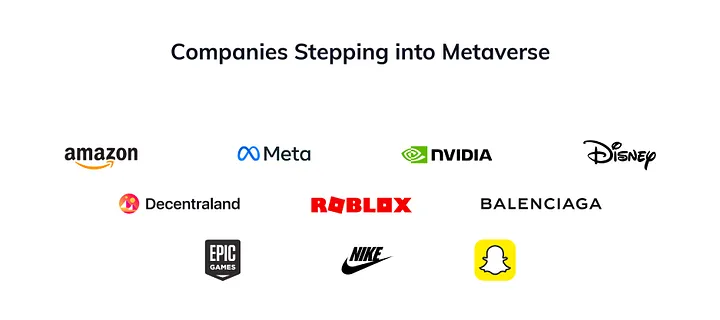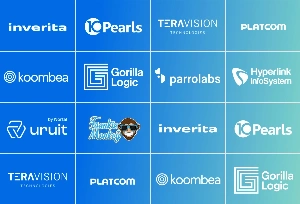The connection between virtual and real-life gives brands an opportunity to launch their digital products that can be bought in digital worlds, including non-fungible tokens that stand for real-life items such as clothes, furniture, etc.
Required Technology Skills of Metaverse Developers
To build applications in the meta-universe, a developer has to know how various digital technologies can be utilized.
Virtual Reality
It is probably an obvious point that VR development knowledge is a requirement. Since the meta-universe constructs are the backbone of VR, competencies such as VR engineering, 3D simulation, video editing, and hands-on experience with wearable gadgets ( HTC VIVE, HoloLens, and Oculus in particular) are crucial. These involve the proficiency to build VR material using the existing assets.
Artificial Intelligence
Creating a reliable meta virtual application requires specific AI software development capabilities, which is critical since users will be engaging with AI-driven avatars and protecting their sensitive data.
Metaverse engineers are expected to be able to write in C++, Java, and Python to create and distribute AI simulations. They should also be fluent in one of big data processing technologies, including Cassandra, Apache Spark, MongoDB, and MongoDBHadoop.
In addition, it helps to know Machine Learning algorithms such as KNN, naive Bayes, linear regression, reference vector machines, e. g.
Engineers also need to be familiar with Deep Learning algorithms such as generative adjoint networks, convolutional neural networks, and recurrent neural networks. Subsequently, the quantum computing industry makes significant leaps with commercial availability in fundamental areas.
Extended or Mixed Reality
Members will engage with 3D virtual environments without being immersed, so anything you create must maintain MX, XR, and AR ground realities. Particularly with XR and MX, there are possibilities to develop innovative business concepts, notably within e-commerce. For instance, this could assume the format of a Virtual Clothing Fitting or a test drive.
NFT Technologies
NFT development knowledge is of utmost priority to create avatars, structures, and entities in Web3. The reason is that NFTs allow you to move freely between servers. Essentially, anything in the meta-universe, even avatars, facilities, experiences, and frameworks, will be realized in the NFT form. Ultimately, it is probably also the next best thing to digital asset identification, validation, and ownership transmission. So engineers should be acquainted with Web3, Smart Contracts, and Blockchain.
Distributed Computing and Storage
Since the meta-universe will require a vast number of computing and storage capacities, it is necessary to have the appropriate background to avoid possible failures or disruptions. Hence, developers ought to be aware of ways to allocate computation and data storage among several hosts. Several other qualifications are animation, HTML, gaming development, Node.js, CSS, MySQL, Unity, and SQL. Given that the metaverse is enormous and has a variety of possible combinations of variables, it has something here to suit almost everybody.
Soft Skills
Of the many outstanding qualities of metaverse developers, the value of “soft skills” never seems to go overlooked. When it comes to the soft skills necessary for metaverse engineers, keeping abreast of the newest emerging trends is at the forefront. Your candidate has to keep a close eye on metaverse trends and new metaverse development practices.
Where Can You Find Metaverse Developers?
The most extraordinary thing about hiring Metaverse developers is the fact that you can meet them in virtual worlds. There is a variety of 3D/virtual spaces where a wide range of conferences and meetings are held every week.
Also, Twitter and Discord are very good tools for fast-growing NFT/crypto communities.
Metaverse Jobs is a popular place to post vacancies in different categories such as avatar design, crypto, NFT, blockchain, and actually anything connected to Metaverse.
Talent Marketplaces include some advanced features for candidate search to find the perfect match for your position. These platforms match people with their potential roles based on their experience, skills, and interests, and then test if they are a good choice for your job opening.
LinkedIn is probably one of the most widely-used online services to search for candidates.
If you post a job listing on any of the aforementioned websites, make sure your job post is as detailed as possible. It should include:
- Company name & main expertise
- Job description (role, responsibilities, requirements)
- Location (office/remote/flexible)
- Job type (contract, full-time, part-time, etc)
- Job industry (VR, AG, NFTs, crypto, gaming, retail, etc)
- Application link
P.S. Though most job posts don’t include salary, mentioning it will significantly increase the number of applicants (depending on the salary you offer, of course)
To Wrap Up
More and more innovations are coming to the virtual world. Thus, in the near time businesses will be forced to hire Metaverse developers to keep up with competitors.
Before starting a hiring process, we recommend you specify your needs and requirements and choose the best talent marketplaces to search for a candidate.
inVerita has a pool of experienced developers in various technologies. Start your Metaverse journey with a free consultation with our experts.








_1764586939-small.webp)